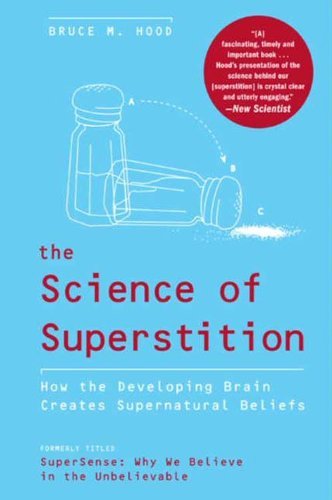What do you think?
Rate this book


“In an account chock full of real-world examples reinforced by experimental research, Hood’s marvelous book is an important contribution to the psychological literature that is revealing the actuality of our very irrational human nature.” — Science
In the vein of Malcolm Gladwell’s Blink, Mary Roach’s Spook, and Dan Ariely’s Predictably Irrational, The Science of Superstition uses hard science to explain pervasive irrational beliefs and behaviors: from the superstitious rituals of sports stars, to the depreciated value of houses where murders were committed, to the adoration of Elvis.
322 pages, Kindle Edition
First published April 7, 2009